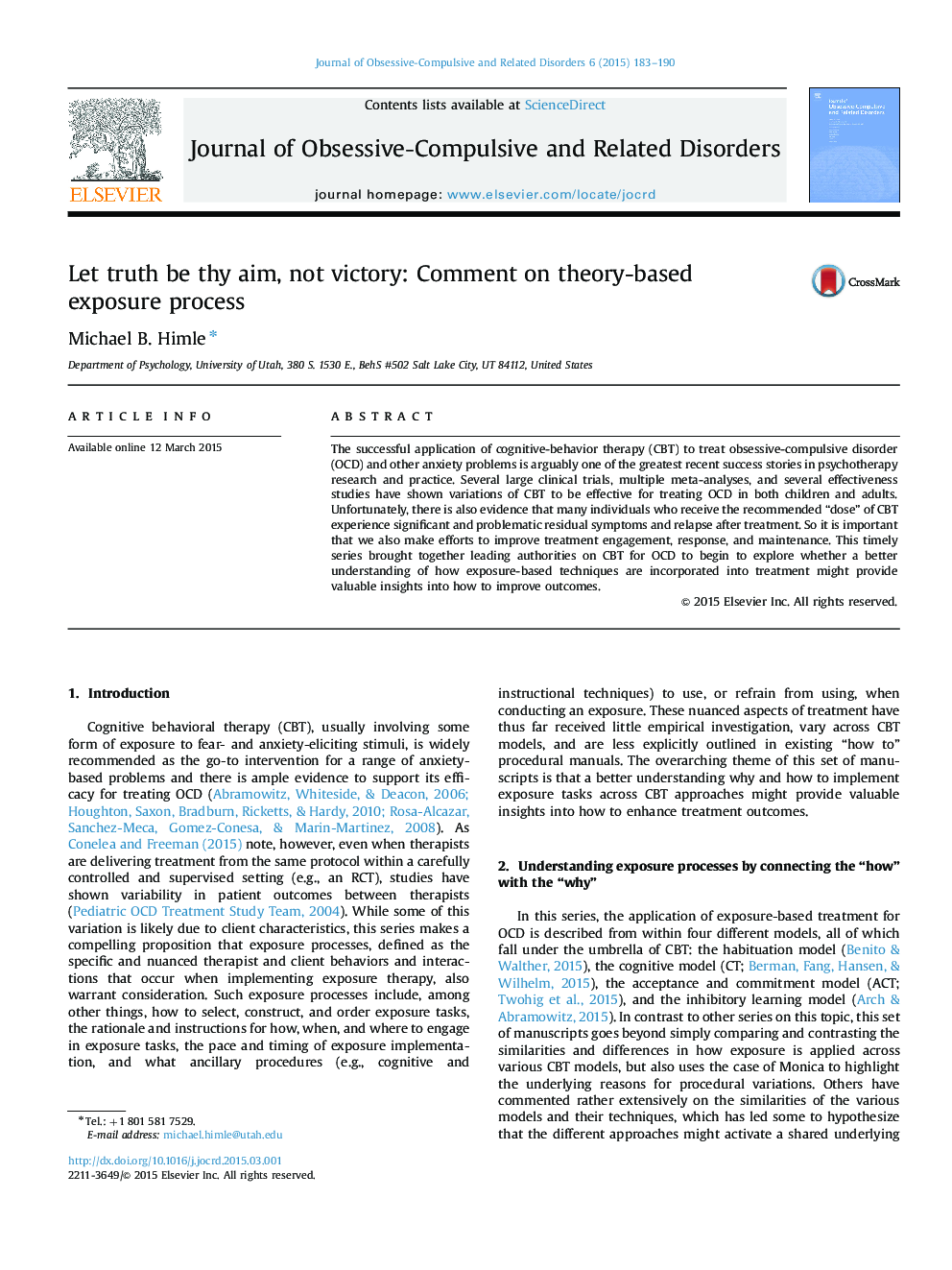| Article ID | Journal | Published Year | Pages | File Type |
|---|---|---|---|---|
| 912243 | Journal of Obsessive-Compulsive and Related Disorders | 2015 | 8 Pages |
The successful application of cognitive-behavior therapy (CBT) to treat obsessive-compulsive disorder (OCD) and other anxiety problems is arguably one of the greatest recent success stories in psychotherapy research and practice. Several large clinical trials, multiple meta-analyses, and several effectiveness studies have shown variations of CBT to be effective for treating OCD in both children and adults. Unfortunately, there is also evidence that many individuals who receive the recommended “dose” of CBT experience significant and problematic residual symptoms and relapse after treatment. So it is important that we also make efforts to improve treatment engagement, response, and maintenance. This timely series brought together leading authorities on CBT for OCD to begin to explore whether a better understanding of how exposure-based techniques are incorporated into treatment might provide valuable insights into how to improve outcomes.
